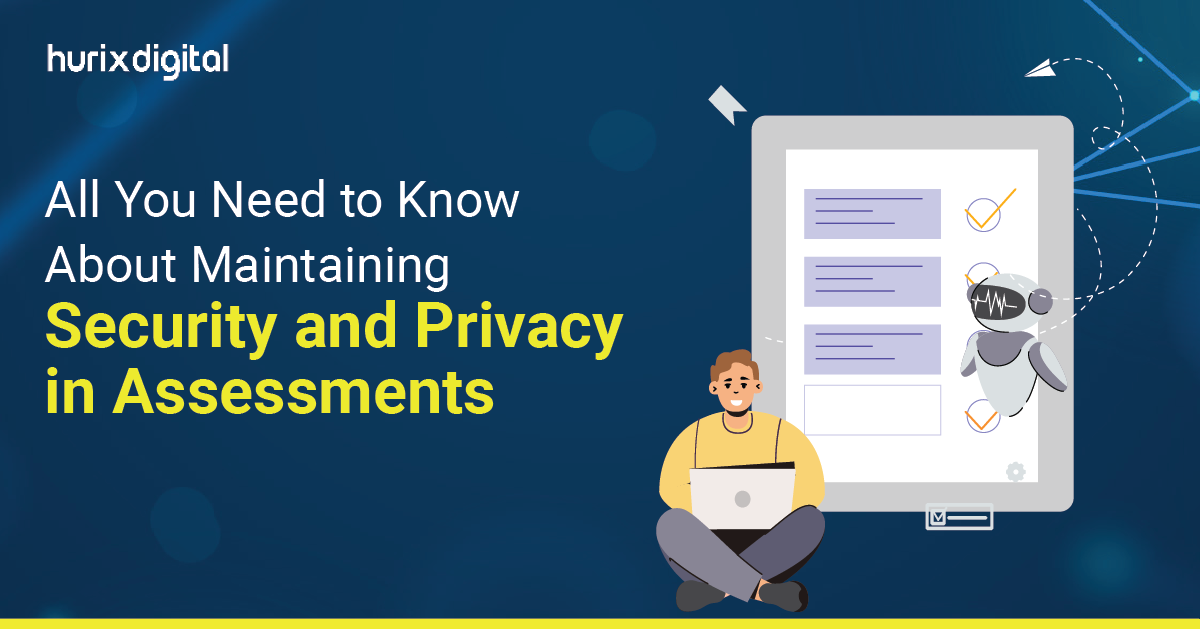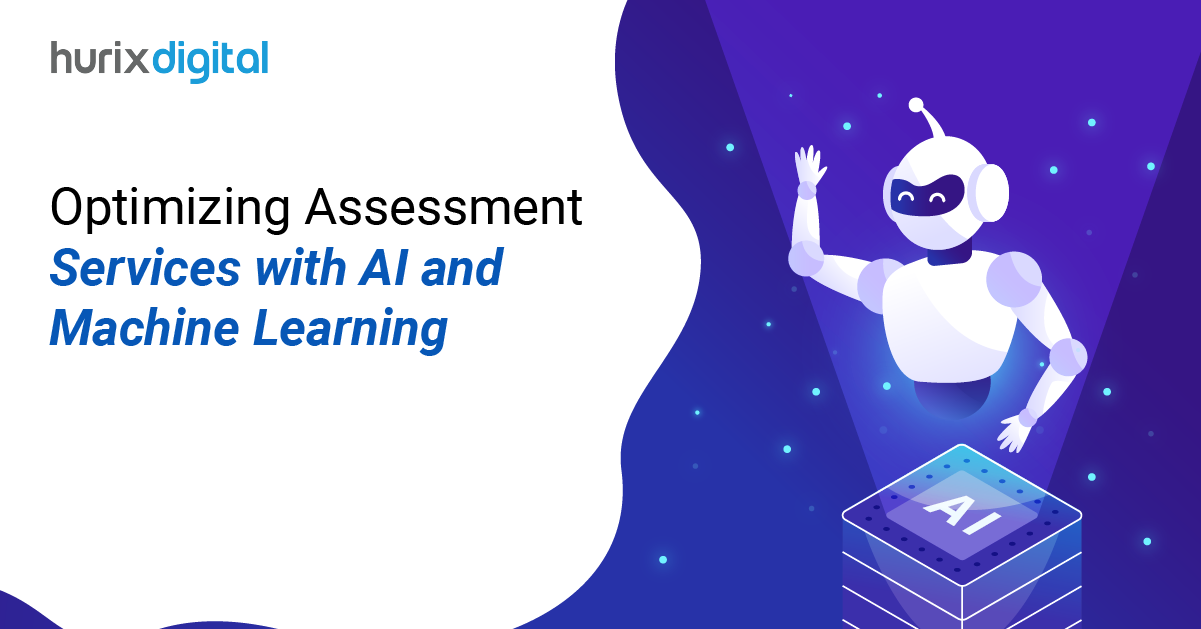
All You Need to Know About Maintaining Security and Privacy in Assessments
Summary
This blog covers security risks and best practices for AI-powered automated assessment generators, stressing the importance of reliable tools and data protection, while showcasing Dictera’s advanced capabilities.
There is an ever-increasing reliance on automated tools powered by generative artificial intelligence (AI) for assessment creation and other content generation methodologies. So much so that the AI-powered testing market is supposed to increase at a CAGR of 20.7% for the next few years till 2030.
Yet, with the rapid spread of these tools, it is time we should consider the potential security risks and threats that come with these technologies. While these automated AI-powered assessment generator tools and the huge language models that power them have revolutionized the eLearning industry, they also present various security and privacy concerns.
In this blog, we will cover these security risks in more detail and explore various ways to ensure security, privacy, and test integrity measures in assessments using leading AI-powered assessment generators such as Dictera by Hurix Digital.
Table of Contents:
- What is Security in Automated Assessment Generators?
- Best Practices for Maintaining Integrity, Security, and Privacy in Online Assessments
- How to Ensure Privacy When Using Automated Assessment Tools?
- The Bottomline
What is Security in Automated Assessment Generators?
Keeping in mind the increasing dependence on AI systems for assessment generation, securing them is one of the most critical aspects to take care of.
AI security in automated assessment generators like Dictera consists of various measures and technologies. It involves technical safeguards like encryption and secure algorithms, content plagiarism checks, and other procedural measures such as regular compliance checks and robust data privacy in assessments.
These measures are designed to safeguard AI systems from unauthorized access, privacy violations, manipulation, and other malicious attacks using the latest technologies, such as AI proctoring solutions and blockchain in assessment security.
Also Read: 10 Best Strategies for Successful Implementation of Online Assessment Tools in Universities
Best Practices for Maintaining Integrity, Security, and Privacy in Online Assessments
Online assessment serves as an essential tool for institutions and organizations to maintain required standards in the virtual testing environment.
These assessments offer multiple benefits, including security and flexibility, contributing to the integrity of the testing process. Using the range of capabilities offered by various online assessment generators, you can comply with best practices to successfully maintain required standards during an age of digital transformation.
Here are some of the best practices for maintaining these academic standards, security, privacy, and integrity in online assessments:
1. Checking for Authenticity
Checking for authenticity or relevancy of assessments is one of the most essential aspects of maintaining the required academic standards. This helps detect plagiarism and ensures the originality of learners’ work.
Dictera is an excellent automated assessment generator tool that helps you check for originality in assessments, perform secure online testing, and detect plagiarism as well. This allows educators to easily differentiate between copied or plagiarized content from the properly researched and referenced assessment material.
2. Having a Secure Environment
A safe and secure online environment is very important for maintaining the security, integrity, and privacy of online assessments.
Such an environment ensures that users can easily access their content, including assessments, while completely removing the potential for accessing unauthorized resources.
3. Logistical Ease of Assessments
The overall design, structure, and standard of online assessment delivery help significantly in building student trust in the overall evaluation process and save time for educators.
When assessments are designed well, transparent, and delivered with integrity, learners are more likely to trust the system, and this also ensures cheating prevention in exams.
On the contrary, poorly designed assessments can destroy student trust, leading to higher chances of learner disengagement and poor learning outcomes.
How to Ensure Privacy When Using Automated Assessment Tools?
Here are some top tips for choosing the appropriate assessment tools, like Dictera by Hurix Digital, to help you ensure the academic integrity and security of your assessments:
1. Choose Reliable and Valid Tools
When it comes to ensuring the security and privacy of the assessments, you should choose transparent tools like Dictera with clear and consistent scoring methods.
Again, it is important to make sure that these tools have been tested and validated for your intended purpose and target audience. Do not forget to check the tool provider’s reputation and review their privacy policy and terms of use as well.
2. Protect and Secure Assessment Data
AI-powered assessment generators should protect and secure your assessment data during and after the assessment. There are several techniques you can use here, including strong passwords, firewalls, encryption, and other security measures to prevent unauthorized access, unwanted disclosure, or any sort of modification of the data.
You should be mindful of whether the tool limits access to the assessment data to users who need it for legitimate purposes, such as educators and L&D teams. Do not share, sell, or publish the data without the participants’ consent.
Additionally, it is important to comply with any applicable laws and regulations regarding data protection and privacy, such as the General Data Protection Regulation (GDPR) in the European Union.
3. Consistent Review and Evaluation
Lastly, make sure to review and evaluate the effectiveness and impact of the assessment tool you choose based on your team’s performance. Take everyone’s feedback, including the participants and other stakeholders involved, about how satisfied they are regarding their expectations and outcomes of the assessment.
Additionally, you also need to consistently monitor and measure the changes and improvements in the team’s skills, behavior, and results after the assessment.
Also Read: 10 Benefits of Using Dictera Over Traditional Assessment Authoring Tools
The Bottomline
While AI-powered assessment generator tools hold immense potential, their adoption does not come without challenges. Several issues related to data privacy, breaches, bias, and security must be addressed with time to ensure a more responsible and equitable AI assessment development.
Therefore, it is important to choose a good AI-powered assessment generator tool that can step in at the source, maintain adequate security and privacy, and eliminate the need for long hours to achieve the same results.
Dictera by Hurix Digital is one such tool that helps create robust assessments from scratch and power teachers’ workflows with the required automation and collaboration capabilities.
Contact our team and learn more about leveraging Dictera for assessment generation.

Currently serving as the Vice President of Technology Delivery Operations at HurixDigital, a prominent global provider of digital content and technology solutions for publishers, corporations, and educational institutions. With over 16 years of experience spanning EdTech and various domains, I hold certification as a SCRUM Product Owner (CSPO). My expertise includes operations, finance, and adept people management skills.





